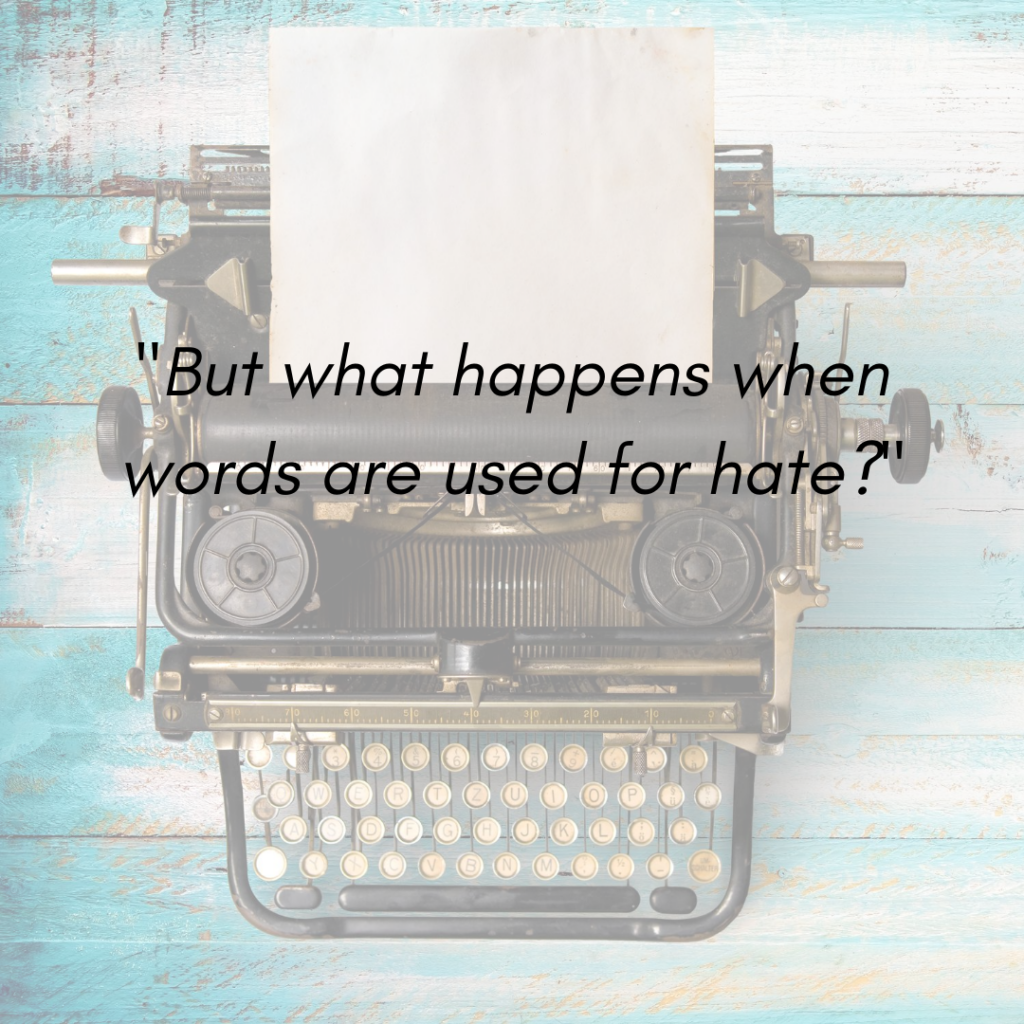Words Have Power

Words have power. They have influence. They conjure emotion and they elicit passion!
But what happens when words are used for hate? What happens when words are used to inspire others to do evil? What responsibility does or should the author of these words of evil hold when it motivates and encourages others to divide and even murder in our community?
This week, a local editorial article penned by the San Antonio Express-News Editorial Board, called out hate speech for what it is; inciting, dangerous, hurtful and cruel. On behalf of the Jewish community of San Antonio, I commend the San Antonio Express-News for shining a light on the prejudice that exists in all corners of our community.
While we grapple as a society with a culture of systemic racism, overt prejudice, and empowered ideologies, it is critical that our Jewish community reach out with one hand and embrace our colleagues, neighbors, and like-minded peace-seeking friends to build bridges. Yet, with our other hand we must also point to acts of hate, whether directed at us or not, and call it out for what it is.
I have been particularly proud of our Community Relations Council (CRC) department of the Jewish Federation of San Antonio these last few weeks, as we actively dedicated our resources to working with our friends and colleagues in the Black and other communities of color. As we enforce our commitment to living values of social justice and social action, the Jewish community knows all too well that when hate exists against any group, it is not long before it rears its ugly head against our community too.
Unfortunately, validating this point, as well as the concerns raised in the article above, JFSA was informed by our local San Antonio Hillel of an awful Anti-Semitic post that was shared on the UTSA student mobile app last week. Although the post was immediately removed, and the UTSA administration’s response was swift, sincere, and regretful, the reality is that acts of Anti-Semitism are on the rise.
Words have great power. In fact, this week’s Torah portion is titled Devarim (“words”). It is the namesake parshah for the Book of Deuteronomy, which finds its secular title in Greek origins meaning “repetition” or “duplication”. This week Moses begins retelling the significant events and associated laws recorded in the previous four books of the Torah.
So, this week, I challenge us as a community to step up, like our volunteers and community leaders of our CRC department, and call out those who would use their words to divide, demean, or degrade anyone. Words do have great power, but when confronted with righteousness, words that heal and bind us in strength will always extinguish those words that try to do otherwise.
Stay safe and Shabbat shalom.

